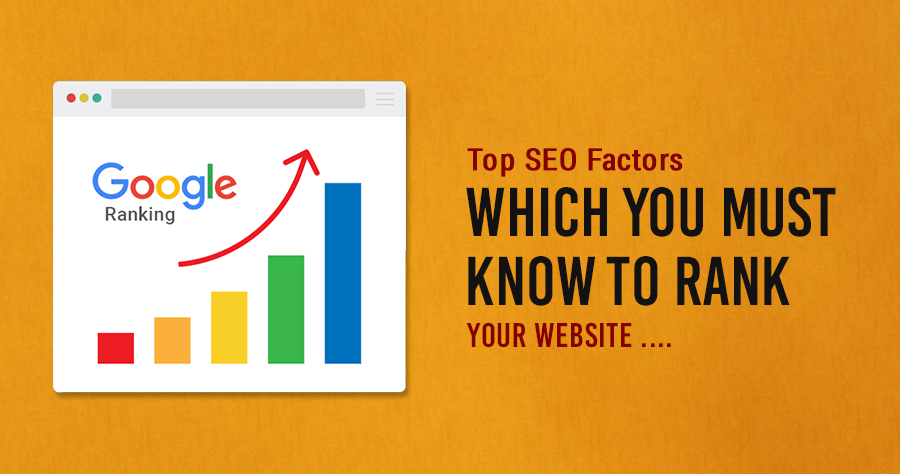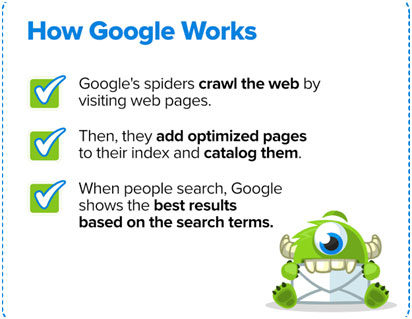
Is your website not ranking? Perhaps, your website has been penalised by Google. Or, maybe the rank drop is due to a new Google update. Now, this can get a bit technical but we’ll break it down for you.
SEO requirements may change every with new Google updates. Staying on the top of all the SEO ranking factors is quite a task, even for SEO experts. But, you don’t have to be an expert to realize that every time there’s a drop in your website ranking, it impacts your business adversely.
If managing your business website is becoming too tedious, outsourcing your requirements to an SEO agency may seem like a feasible step. In any case, whether you choose to work on your website on your own or you collaborate with a digital marketing agency, it is always good to be in the know of the latest SEO ranking factors.
But before we jump into the factors that can impact your google website ranking, let’s start with the basics of search engine optimization.
What Is SEO?
SEO is the process of optimising a website as per google ranking factors. If your website is well-optimized, it will rank higher on Google and become more visible to potential customers. This may lead to more website traffic and better lead generation.
How Does Google Work?

Ref: https://optinmonster.com/seo-ranking-factors/
What are the top 12 google ranking factors?
- Not having a secured website– Back in 2014, Google had declared site security as a ranking factor. Now, what do we mean by site security? You can make out if a site is secured or not, from its HTTPs encryption. These sites have SSL certificates which create a secure connection between a website and its users. The search engines are always aiming to improve user experience, and that’s why they will direct users to the most trustworthy sites. If the URL of your website begins with HTTP, then your site will be deemed as not secured, and that will be in turn impact your website ranking. To rectify this, you must add an SSL certificate.
- Your website takes too long to load– This is another important Google ranking factor. Users prefer websites with less loading time, and so does Google. Google is always looking forward to enhancing user experience, and fast-loading websites definitely do that. This includes mobile page speed as well. Google launched a new update in July 2018, according to which it will consider site load speed on mobile devices as a crucial ranking factor.
- When your website isn’t mobile-friendly– Did you know that 52.2% of internet traffic comes from mobile devices alone? Therefore, it is no surprise that mobile-friendliness is such an important SEO ranking factor. The number of searches from smartphones exceeds the number of searches conducted from desktops. So, mobile-friendliness is important to both users and search engines. To make your site mobile friendly, use responsive designs that adjust the content according to screen-size. Not sure if your site is mobile-friendly or not? Submit your site to Google’s Mobile-Friendly Test.
- When your website is not optimised for user engagement: The ultimate objective of search engines like Google is to provide users with the best search experience. Google takes inputs from the user to determine which pages they should promote. If users have positive interaction with a site, Google deems it as useful and ranks it higher. The factors that Google take note of includes time spent on site and bounce rate. To make your website rank on Google; optimise your site for these SEO factors.
- When your website lacks high-quality content: You have heard it a million times by now, content is the king. So, it’s needless to point out that, content is one of the most important SEO ranking factors. More and more people turn to the internet to read up about things or to find solutions for problems. So, search engines give priority to the sites that have authentic and original content with meaningful insights. To boost your website content, write fresh, engaging content and optimize it by inserting relevant keywords. And, this brings us to our next point.
- When your content is not keyword-optimised– Creating content randomly is going to create little to no value. So if you want to work on your Google website ranking, back up your content creation process with solid keyword research. By identifying popular keywords and inserting them in your content, you will be able to drive more traffic to your site. With a rise in voice search, more and more users are using long phrases and questions. So, when optimising your website content by inserting keyword, make sure you use long-tail keywords (3 words or more) in addition to shorter generic ones.
- When you don’t pay attention to on-page SEO factors– On-page SEO is the process of optimising individual pages on your site with a target keyword. When you optimise your content for a particular set of keywords, it tells the search engine what the page is all about and what it should rank for. The right way to do this is to assign one set of keywords to per page in your website, and never assign the same keyword to more than one page.
- When your website is not optimized for feature snippets– Structured data or schema mark-up is another way of telling the search engine what your page is all about. It is yet another important website ranking factor. Schema mark-up refers to the microdata that is added to the backend of a web-page. The purpose of it is to tell search engines how to classify and interpret content.
- When your site doesn’t have enough backlinks– Backlinks tells search engines that a website is credible and authoritative. So the more backlinks you have, the more authentic your site is going to appear. However, when it comes to backlinks, the quality of the links matter as much as quantity. Backlinking is an important off-page SEO ranking factor. If you want your site to rank, you need a plan for building high-quality backlinks for your site.
- Have you considered domain age– How old is your website? If you have launched a new site, don’t expect it to start seeing results instantly. It takes time for your SEO efforts to kick in. But you must keep at it. With time, you will be able to see an improvement in your website ranking. The age of your domain (as in how old your website is) is an important SEO ranking factor.
The Conclusion
Does all of this sound too technical for you? There’s no need to get overwhelmed. At IMZ Media Solutions, we have been helping our clients with digital marketing solutions for the last 10 years. And, if we may say so, search engine optimization is one of our core capabilities. We know how to navigate the deep digital waters and we are good at what we do. To avail of our SEO services, call us now @ +91 22 23682245 / 8998 or write to us at info@imzmediasolutions.com.




Leave a Comment